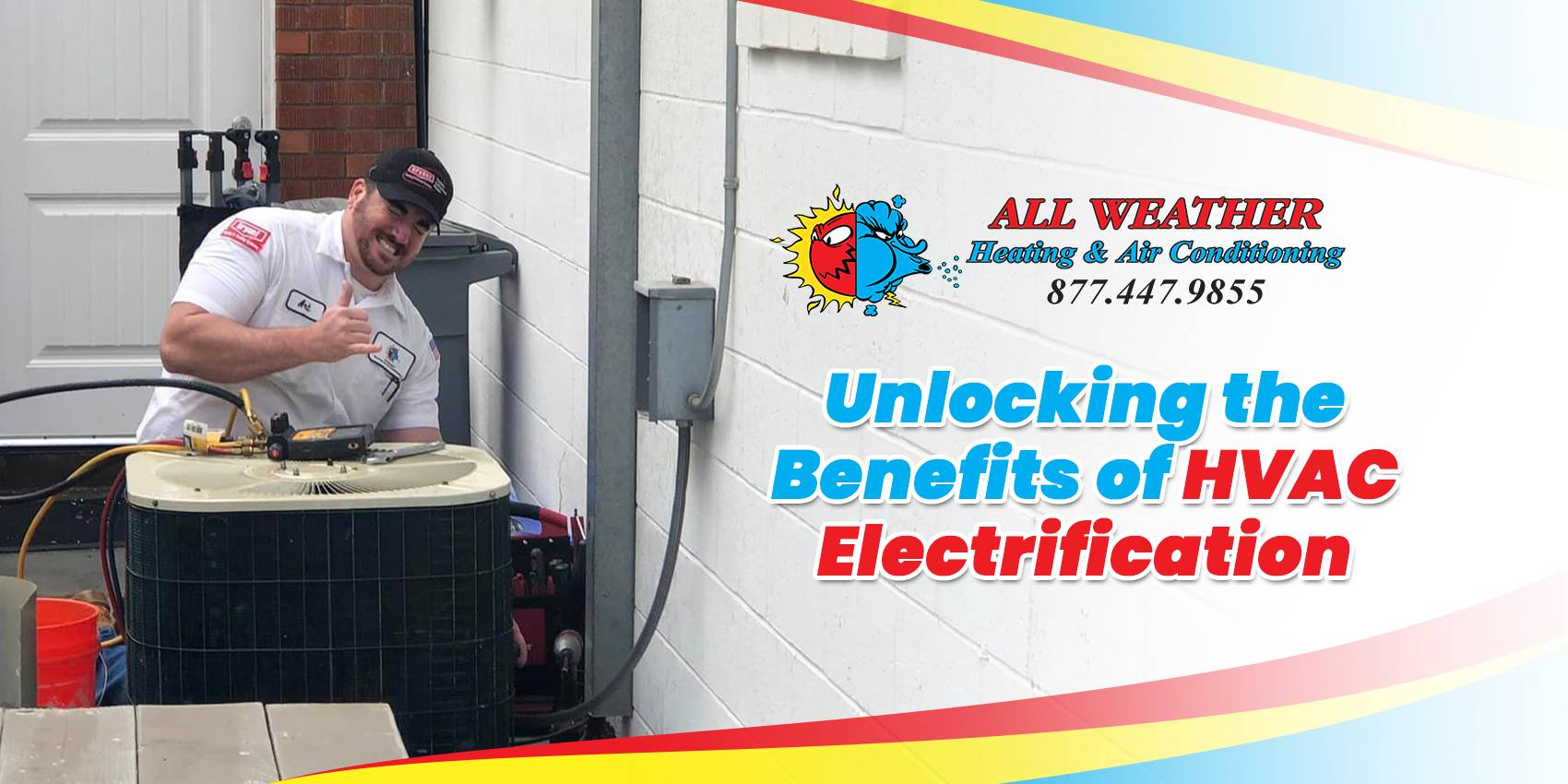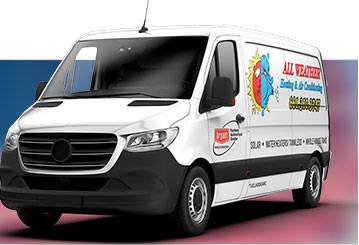One of the oldest heating systems known to mankind is heat transfer. In the modern era, heat transfer has evolved into heating systems with better efficiency and energy savings. Out of all heating systems, heat pumps are the most energy-efficient ones. Most heating systems rely on fossil fuels (natural gas or oil). However, heat pumps use electricity from fossil fuel or renewable energy sources like solar and wind power.
HVAC electrification refers to the process of converting heating systems from fossil fuel-based to electric heating systems. There are different types of HVAC electrification available in the market: heat pump only, hybrid heat pump, and gas backup heat pump. HVAC electrification can help homeowners save money on heating bills and increase their home’s resale value by adding an extra layer of comfort. In this blog, we will discuss how you can benefit from HVAC electrification and how it works. We will also touch upon its various types and cost-saving tips that you can follow to make your system more energy efficient
What is HVAC Electrification?
– HVAC electrification is the process of switching from fossil fuels to electricity for heating and cooling in buildings.
– In California, electrification of buildings is a greenhouse gas mitigation strategy than reliance on renewable natural gas.
– An electric heat pump system, grid-connected air conditioning unit or solar electric system can be used as part of an electrified building. The efficiency of these systems has improved significantly in recent years, making electric heat pump systems cost-effective. Additionally, renewable energy sources such as solar and wind power are becoming more affordable, making electric air conditioning systems accessible to more building occupants
– Technologies such as heat pump units, solar electric systems, and grid-connected air conditioners have been developed that can reduce greenhouse gas emissions in homes by up to 90% by 2050.
Benefits of HVAC Electrification
HVAC electrification has become a popular option for improving energy efficiency and lowering energy bills. Electric and hybrid heating systems provide greater control over home temperature, while emissions-free electric heating systems can be powered by renewable energy sources such as solar and wind power. Electrifying HVAC systems allow for the use of clean energy sources and have the potential to have a lower carbon footprint than fossil fuel-based heating systems. The shift towards electrification has caused changes in building design and construction practices, which has made it possible to create more efficient buildings that are also environmentally friendly.
Apart from environmental benefits, the electrification of heating systems offers many other advantages. For starters, it can reduce the risk of carbon monoxide poisoning from fossil fuel-powered heaters, which is a major concern for the elderly and children. Moreover, electric heaters are easier to operate and maintain than gas or oil furnaces or HVAC air conditioning units.
How to Implement HVAC Electrification?
– Electrifying heating, ventilation, and air conditioning systems can reduce greenhouse gas emissions and capital costs.
– Switching to a hybrid or electric system can lower energy bills due to a heat pump transferring existing heat.
– Electrification of heating, ventilation and air conditioning (HVAC) systems can be powered by renewable energy sources such as solar or wind power.
– HVAC electrification is more efficient and powerful and can save energy due to variable speed motors and inverter-driven compressors.
– Electrification can improve operational precision and reduce waste by moving heat from one location to another.
– In addition to benefits relating to climate change mitigation, electrification of HVAC systems can also improve indoor air quality, fuel efficiency, and efficiency.
– Finally, electrification of heating, ventilation, and air conditioning systems provides improved occupant comfort with features such as variable speed motors and inverter-driven compressors.
Different types of HVAC Electrification systems
– Solar-powered heaters are gaining popularity as a more sustainable energy source for heating air in homes and buildings. They are an affordable, environmentally-friendly option for heating air in homes and buildings, and they have the added benefit of being able to operate completely off the grid if desired. However, solar heaters have their limitations. They can only heat air to a certain point and must be connected to an energy source in order to do so. This limits the places where they can be used, and makes them less efficient than electric heating systems.
– With electrification becoming more mainstream, building design and construction practices are changing. This includes installing electric heat pump systems rather than gas units on new buildings. Besides providing cleaner emissions, these electrified systems also offer enhanced efficiency and functionality compared with gas heating systems. Overall, electrification has made renewable energy sources such as solar heaters and wind more viable options for heating air in buildings
Cost-saving tips for using HVAC Electrification
– Switching your HVAC system from a traditional system to an electric or hybrid one can result in better energy efficiency and lower energy bills.
– An electrically-powered heat pump (HP) system is a cost-efficient way of heating and cooling your home. They can operate at up to 500% efficiency, moving heat from one location to another, rather than simply generating heat directly.
– One benefit of electrification is that it provides cleaner, healthier air for indoor environments. This is because electric heat pump systems don’t produce any emissions or byproducts, such as carbon dioxide, water vapor, or particulates, like a gas- or oil-fired unit.
– Electrifying your HVAC system also reduces greenhouse gas emissions by eliminating fossil fuel consumption and the associated carbon footprint.
Reducing emissions from gas- or oil-fired units can improve indoor environmental quality while improving energy efficiency and savings on your energy bill.
As you consider electrification of your HVAC system, be sure to consider its benefits as well as its costs and make an informed decision on how best to improve the performance of your home’s air conditioning and heating system.
Conclusion
HVAC electrification is not a new concept. However, it has taken many decades to gain popularity because of the cost and lack of understanding of the benefits. But with the advent of smart buildings, HVAC electrification is becoming more common. It has been proven to be beneficial in several aspects, including efficiency, cost savings, and indoor air quality. So if you want to unlock the benefits of HVAC electrification in your building or want to know how to change your old system to an HVAC-enabled one, we’ve got you covered. Get in touch with our experts today!


